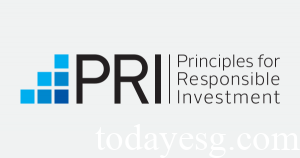History of Responsible Investment
Responsible investment was originally designed to avoid investing in ‘evil stocks’, where investors made moral judgments about which assets should be excluded from the investment portfolio. As the market’s understanding deepens, the initial negative screening is expanding to various forms of responsible investment.
United Nations Principles for Responsible Investment were established in 2006 with the aim of creating an efficient and sustainable financial system. UNPRI encourages investors to incorporate environmental and social factors into their investment decisions in order to have a positive impact. The signatories of UNPRI have exceeded 4000.
Responsible Investment Methods
According to Global Sustainable Investment Alliance, responsible investment can usually be divided into: ESG integration, negative screening, positive screening, normal screening, impact investment, thematic investment, and company engagement. ESG integration is the most widely used method for responsible investment.
There are many reasons why investors apply responsible investment. Some investors believe that it can reduce investment risks, some believe that it can improve investment returns, and some believe that they can fulfill their entrusted responsibilities.
Responsible Investment Future
There is no universal standard for responsible investment, and different investors may adopt different methods based on their investment preferences. For example, asset owners have a stronger motivation to implement responsible investment than asset managers. This has been validated in some investment documents of central banks.
Some financial institutions are promoting standardization of information on responsible investment. For example, UNPRI, the Global Sustainable Investment Alliance, and the CFA Institute have released definitions of key terms for responsible investment to assist market participants in communication.

CFA Institute Releases Definitions of Key Terms in Responsible Investing
CFA Institute has released definitions of key terms in responsible investing

Responsible Investment Association Releases Responsible Investment Trends Report
The Canadian Responsible Investment Association (RIA) released the responsible investment trends report

Share Action Releases Responsible Investment Report for AM Industry
Share Action, an international research institution, releases a report to investigate 77 asset management companies in the world, to provide the practice of asset management industry in responsible investment, and put forward suggestions to different participants

PRI Releases Due Diligence Questionnaire for Fixed Income Investors
The United Nations Principles for Responsible Investment (PRI) releases the Due Diligence Questionnaire (DDQ) for fixed income investors, aiming to provide investors with an application template for responsible investment based on the fixed income perspective and provide supplement information for the overall PRI reporting framework

Nuveen Releases Responsible Investing Survey
Nuveen, an asset management company, recently released the seventh edition of the survey report on responsible investing, detailing investors’ views towards responsible investment last year. The sharp fluctuations in the global stock and debt markets in 2022 did not dampen investors’ enthusiasm for responsible investment, but rather hoped to reduce the volatility of the asset portfolio through this way

UNPRI Updates Reporting Framework
The United Nations Principles of Responsible Investment (UNPRI) released the report framework of asset management companies and adjusted the 2021 version. UNPRI believes that this update focuses on improving the clarity, consistency, and practicality in order to reduce the reporting work of the signatories

Introduction to UNPRI and Responsible Investing
The United Nations Principles for Responsible Investment (UNPRI) was initiated by the United Nations in 2006 and participated by global financial institutions. Like the ESG proposed in 2004, the goal of UNPRI is to create an efficient and sustainable global financial system

US SIF Releases 2022 Sustainable Investing Report
The statistical means of sustainable investment in this report are different from those in the past. If the financial products only contain words related to “ESG” or “sustainable investment”, but do not clearly indicate that the corresponding sustainable content
